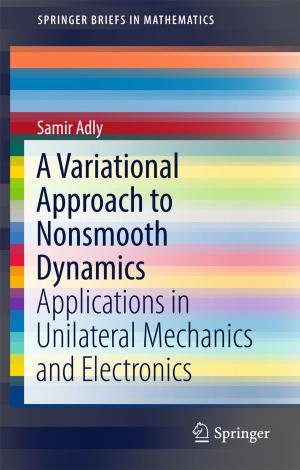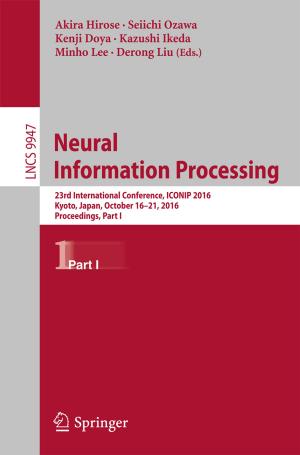Process Analytics
Concepts and Techniques for Querying and Analyzing Process Data
Business & Finance, Industries & Professions, Information Management, Nonfiction, Computers, Advanced Computing, Information Technology, General Computing| Author: | Boualem Benatallah, Daniela Grigori, Sherif Sakr, Ahmed Gater, Moshe Chai Barukh, Seyed-Mehdi-Reza Beheshti, Hamid Reza Motahari-Nezhad, Seung Hwan Ryu | ISBN: | 9783319250373 |
| Publisher: | Springer International Publishing | Publication: | March 28, 2016 |
| Imprint: | Springer | Language: | English |
| Author: | Boualem Benatallah, Daniela Grigori, Sherif Sakr, Ahmed Gater, Moshe Chai Barukh, Seyed-Mehdi-Reza Beheshti, Hamid Reza Motahari-Nezhad, Seung Hwan Ryu |
| ISBN: | 9783319250373 |
| Publisher: | Springer International Publishing |
| Publication: | March 28, 2016 |
| Imprint: | Springer |
| Language: | English |
This book starts with an introduction to process modeling and process paradigms, then explains how to query and analyze process models, and how to analyze the process execution data. In this way, readers receive a comprehensive overview of what is needed to identify, understand and improve business processes.
The book chiefly focuses on concepts, techniques and methods. It covers a large body of knowledge on process analytics – including process data querying, analysis, matching and correlating process data and models – to help practitioners and researchers understand the underlying concepts, problems, methods, tools and techniques involved in modern process analytics. Following an introduction to basic business process and process analytics concepts, it describes the state of the art in this area before examining different analytics techniques in detail. In this regard, the book covers analytics over different levels of process abstractions, from process execution data and methods for linking and correlating process execution data, to inferring process models, querying process execution data and process models, and scalable process data analytics methods. In addition, it provides a review of commercial process analytics tools and their practical applications.
The book is intended for a broad readership interested in business process management and process analytics. It provides researchers with an introduction to these fields by comprehensively classifying the current state of research, by describing in-depth techniques and methods, and by highlighting future research directions. Lecturers will find a wealth of material to choose from for a variety of courses, ranging from undergraduate courses in business process management to graduate courses in business process analytics. Lastly, it offers professionals a reference guide to the state of the art in commercial tools and techniques, complemented by many real-world use case scenarios.
This book starts with an introduction to process modeling and process paradigms, then explains how to query and analyze process models, and how to analyze the process execution data. In this way, readers receive a comprehensive overview of what is needed to identify, understand and improve business processes.
The book chiefly focuses on concepts, techniques and methods. It covers a large body of knowledge on process analytics – including process data querying, analysis, matching and correlating process data and models – to help practitioners and researchers understand the underlying concepts, problems, methods, tools and techniques involved in modern process analytics. Following an introduction to basic business process and process analytics concepts, it describes the state of the art in this area before examining different analytics techniques in detail. In this regard, the book covers analytics over different levels of process abstractions, from process execution data and methods for linking and correlating process execution data, to inferring process models, querying process execution data and process models, and scalable process data analytics methods. In addition, it provides a review of commercial process analytics tools and their practical applications.
The book is intended for a broad readership interested in business process management and process analytics. It provides researchers with an introduction to these fields by comprehensively classifying the current state of research, by describing in-depth techniques and methods, and by highlighting future research directions. Lecturers will find a wealth of material to choose from for a variety of courses, ranging from undergraduate courses in business process management to graduate courses in business process analytics. Lastly, it offers professionals a reference guide to the state of the art in commercial tools and techniques, complemented by many real-world use case scenarios.















